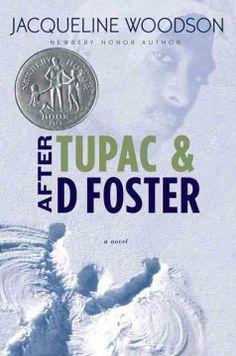[We welcome this week's guest post from Da` Lyberri-Ann]
By: Da’ Lyberri-ann
So another Midwinter has passed and like red carpet season, our new literary award winners have been announced with great fanfare. Facebook was filled with selfies and group pictures of committee members proud of a year’s hard work and accomplishments. As a librarian I should feel giddy and excited. New books are winning awards for outstanding literature in many different categories. As a children’s librarian I should be pulling out rolls of golden stickers to note these books of honor and proudly promoting them to my community. But I am not excited or proud. I’m upset. Disappointed. Dare I say “pissed off?”. Why? it is because again I see that although #blacklivesmatter for sound bites in the news, it doesn’t result in actual change.
At the risk of pointing out the pink elephant in the room I’ll tell you why: The Caldecott committee didn’t have any people of disadvantaged minority status. Or to be blunt: No Blacks, No Hispanics, No Native Americans served on the Caldecott this year. Again.
[There were two people of color on this year's Caldecott Committee: The chair, Junko Yakota and Lucia Acosta].
And to be honest I am sick of it! 20 people on the committee: 16 women, 4 men, one of Asian ancestry, and .. thats it. 19 white folks and one token Asian! WTF!!!! A committee that is supposed to find the best picture books in the nation didn’t have a single Hispanic! For crying out F****in’ loud, how hard is it to find a Hispanic children’s librarian in a country with over 30% of its population Hispanic?
Honestly how hard is it to find a Black children’s librarian to serve on this committee? Now I know the excuses and they are bulls****. Minority ALA members pay dues, they are active in the organization but are repeatedly blackballed, and denied access to the very committees that will result in a change in ALA structure. When was the last time a book about a Black or Hispanic child won the Caldecott? ….. I’ll wait. ( you had to google it, admit it) And that proves my point.

It is not enough that the CSK (Coretta Scot King) award exists. If #blacklivesreallymatter and #brownlivesmatter we need to acknowledge in mainstream awards that the stories of their lives are significant. It’s like a Black musician being happy their album won the BET awards. It’s all well and good be acknowledged by your own, but true change happens when your music crosses into the mainstream and wins a Grammy. I know what some of you are thinking: Viva Frida was honored! And a that book about the slave poet in 2011… it was honored too. It is significant that the books are acknowledged right?
 2009 Newberry Honor Book
2009 Newberry Honor Book
Not anymore. I am sick of books about minorities earning second place. I am sick of the message that they are good enough for CSK but not for Caldecott. I am sick of the message that the stories are not worthy of a mainstream audience. And until I see consistent Black and Brown faces on the committees I will not see this change. So I won’t be supporting this racist situation by marketing the Caldecott winners to my Black and Brown library users. #Blackbooksmatter.
Pura Belpré
2015 Author Award Winner
I Lived on Butterfly Hill, written by Marjorie Agosín, illustrated by Lee White and published by Atheneum Books for Young Readers, an imprint of Simon & Schuster Children's Publishing Division
Pura Belpré
2015 Illustrator Award Winner
Viva Frida, illustrated and written by Yuyi Morales and published by Roaring Brook Press, a Neal Porter Book
The Coretta Scott King Book Awards
2015 Author Award Winner
“brown girl dreaming” published by Nancy Paulson Books, published by the Penguin Group, Penguin Group (USA) LLC
The Coretta Scott King Book Awards
2015 Illustrator Award Winner
“Firebird” written by Copeland and published by G. P. Putnam’s Sons, published by the Penguin Group, Penguin Group USA




